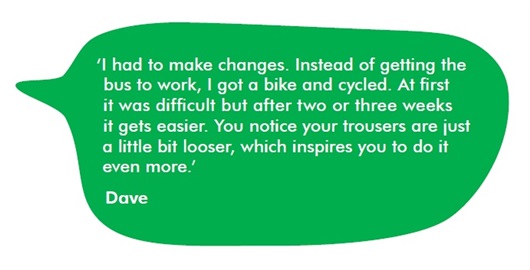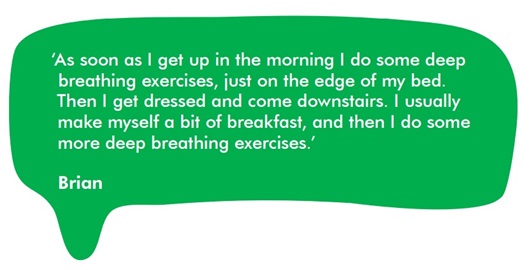
It’s World Heart Day! This year, the focus is on creating heart-healthy environments. This means helping people to make healthy lifestyle choices for their heart. Some people affected by cancer have problems with their heart health, but there might be some things you can do to reduce the risk. This blog, written by editorial assistant Liza, takes a look at what you can do to create your own heart-healthy environment.
Did you know? You can improve your heart health:
There are a few things that might contribute to heart problems – some factors are beyond your control, such as age and family history, but other risk factors can be reduced. These are known as lifestyle risk factors and there are things you can do to control them.
Let’s investigate some of these lifestyle risk factors, and what you can do this Heart Day, and every day, to reduce the risk.
1. Diet. Eating a balanced diet can help reduce the risk of heart problems. Here’s some tips:
2. Keeping physically active. This can help to strengthen your heart muscle, lower blood pressure, improve your circulation, reduce your body fat and help you maintain a healthy weight. You may find it hard to think about being active when you are coping with cancer and possible side effects of treatment. But even making small changes can help. And there are lots of different ways to exercise.

3. Stress. Cancer can be stressful for lots of reasons. But it is important to try and find healthy ways of coping with stress. You could try some of these ideas:

We hope this Heart Day you find these suggestions helpful, and are able to use them to kickstart a healthy heart lifestyle. We also have more information and top tips you might find helpful. You can also order our free booklet Heart health and cancer treatment booklet, made in partnership with the British Heart Foundation. Or visit the BHF website for more information. Happy Heart Day!
To see what else Macmillan's cancer information team has been blogging about, please visit our blog home page! You can subscribe to receive our blogs by email or RSS too.
We're with you every step of the way
The Macmillan team is here to help. Our cancer support specialists can answer your questions, offer support, or simply listen if you need a chat. Call us free on 0808 808 00 00.
Comments? Feel free to add them below (you need to be logged in).
Keep in touch Follow Macmillan’s cancer information team on Twitter @mac_cancerinfo
Whatever cancer throws your way, we’re right there with you.
We’re here to provide physical, financial and emotional support.
© Macmillan Cancer Support 2026 © Macmillan Cancer Support, registered charity in England and Wales (261017), Scotland (SC039907) and the Isle of Man (604). Also operating in Northern Ireland. A company limited by guarantee, registered in England and Wales company number 2400969. Isle of Man company number 4694F. Registered office: 3rd Floor, Bronze Building, The Forge, 105 Sumner Street, London, SE1 9HZ. VAT no: 668265007